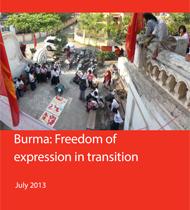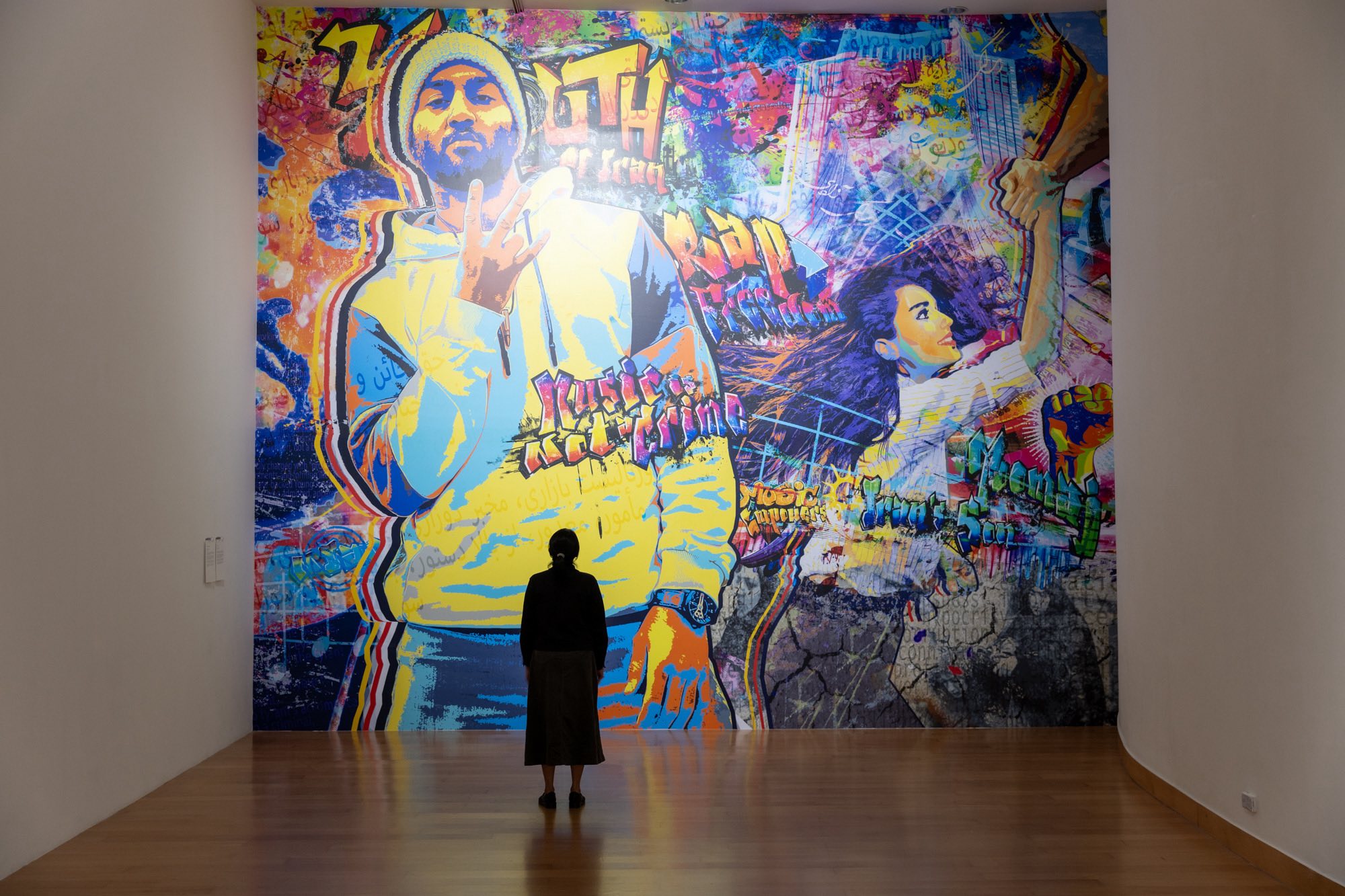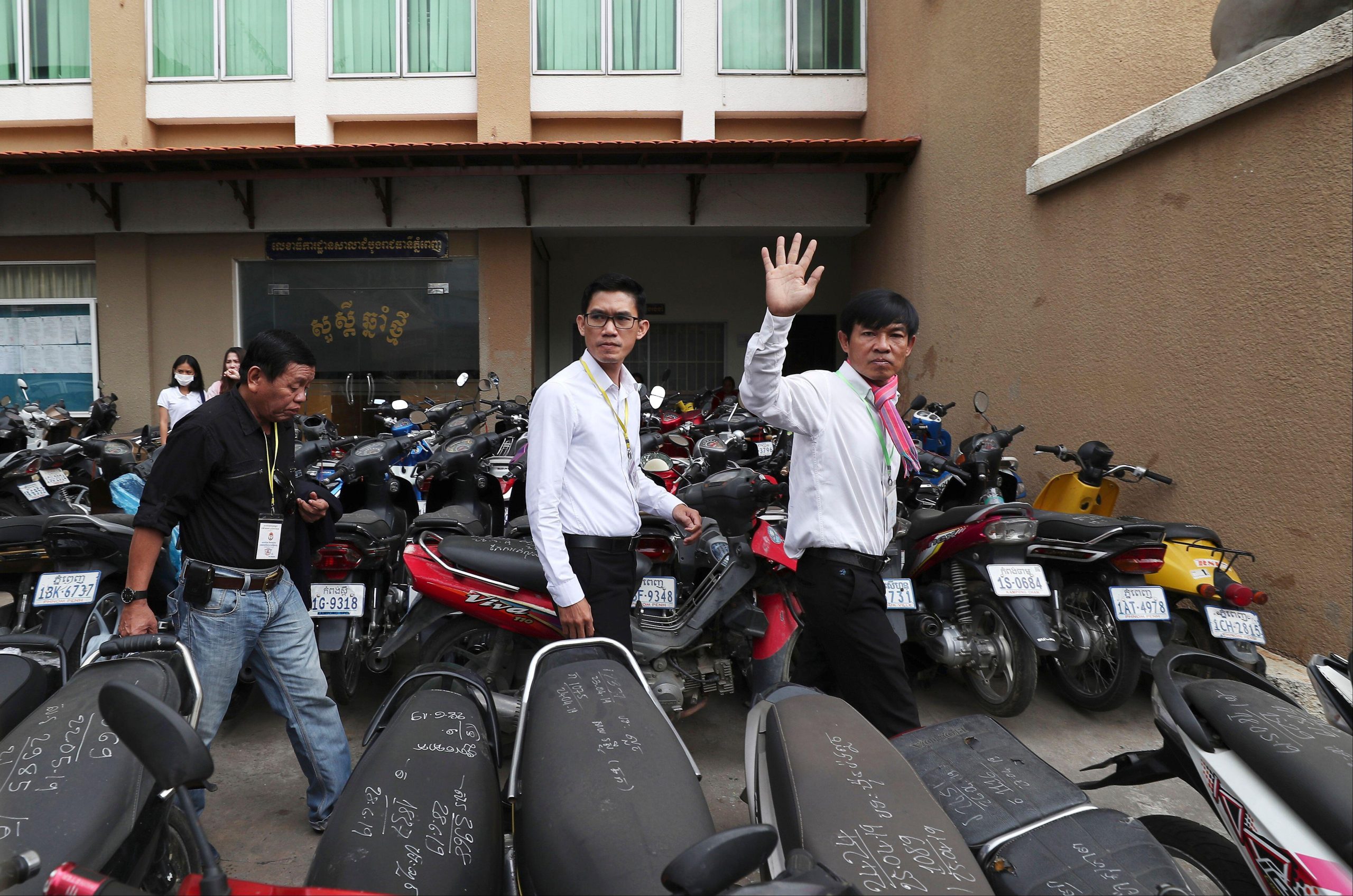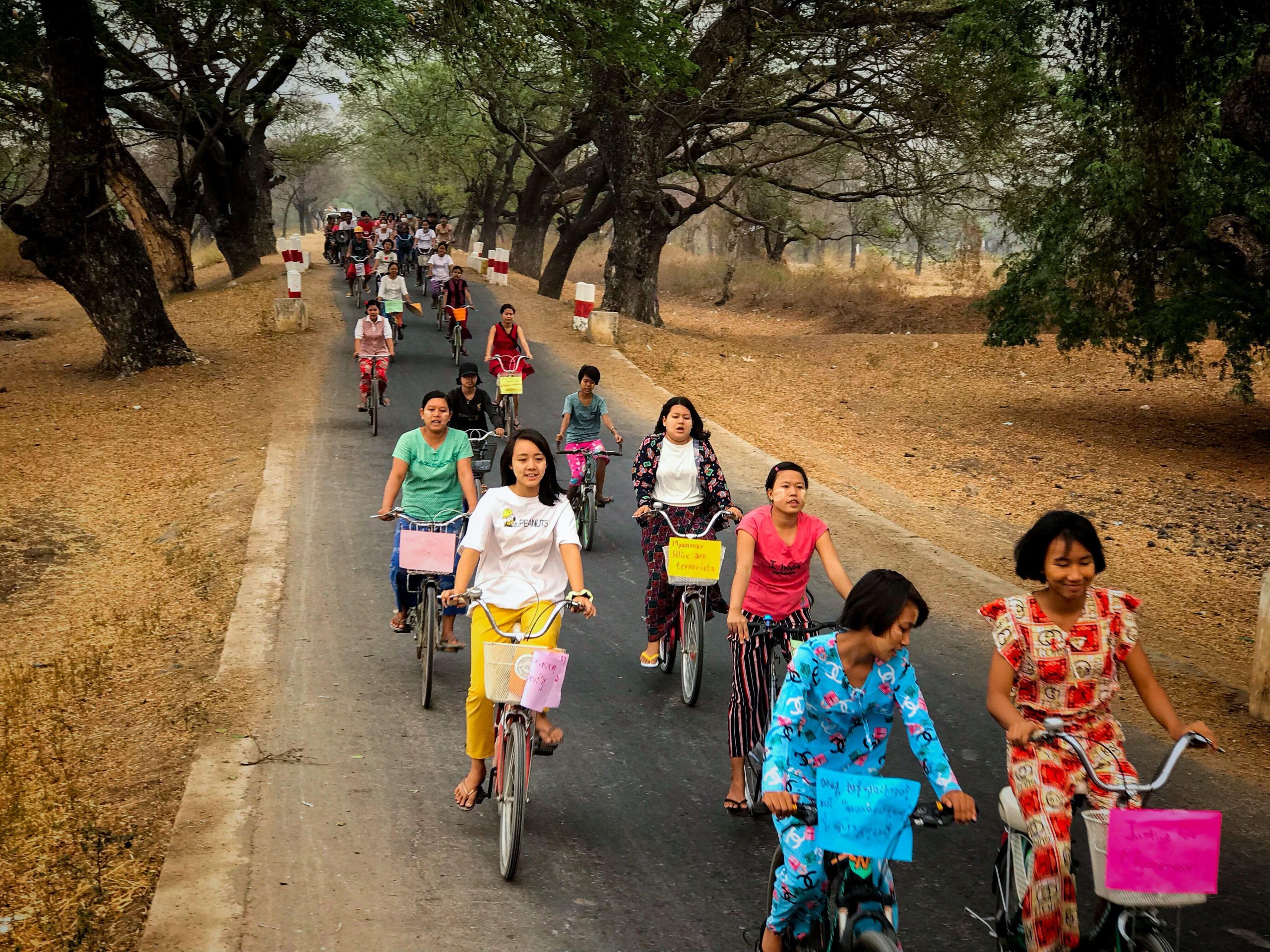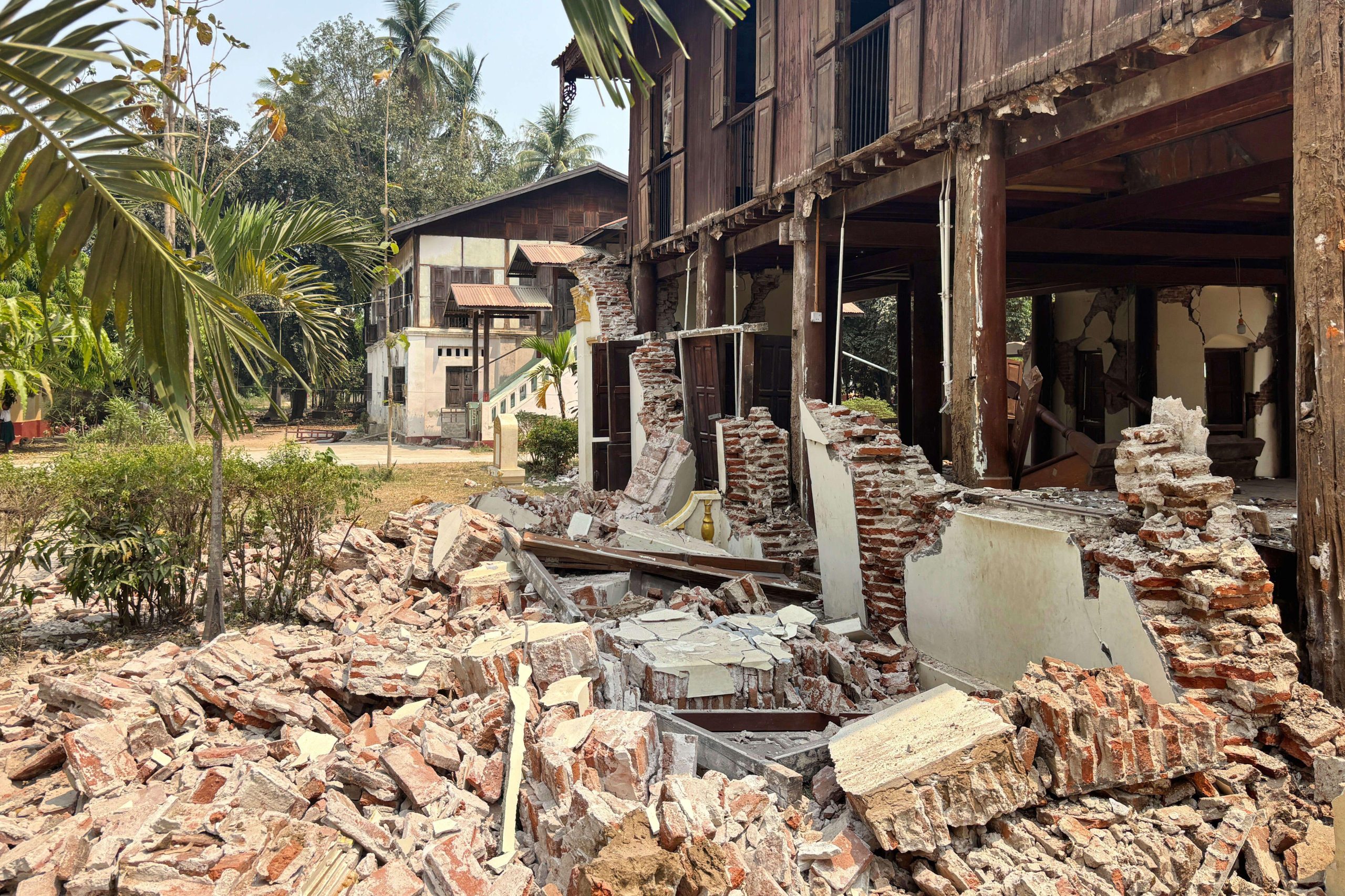Real improvements have been made that strengthen digital freedom of expression in Burma from ending the blocking of Skype calls, to restrictions on internet cafe use being lifted and a reduction in SIM costs which will open up access to the internet and mobile telecoms. However, the legal framework remains largely unchanged during the transition to civilian government, in particular the draconian Electronic Transactions Act which contains many restrictive provisions on internet use. Built into the network infrastructure there are physical restraints on the internet in Burma with only one internet gateway for personal users allowing the possibility of deep packet inspection and web filtering. Upload speeds in Burma remain slow and the country’s mobile telephone and internet usage is one of the world’s lowest, which affects the dissemination of information. It is also alleged that activists’ email accounts have been hacked by the state. While in practice the internet and internet activists are considerably freer than a year ago, in theory they are still liable to lifetime prison sentences for the political use of email accounts. Without legal reform and technical reform, digital freedom of expression will remain chilled and mobile and internet use will continue to be highly limited.
Access issues, Smartphones and mobile telephony
Internet usage, mobile phone penetration and the use of smartphones in Burma remain extremely low by regional standards. According to the World Bank in 2011, only 1% of the population was online – compared to 10.1% in India, 23.7% in Thailand and 35.1% in Vietnam. Many Burmese believe this is due to a deliberate policy by the regime to restrict access to the internet and mobile phone technologies to prevent opposition activists from organising.
Still less than 10% of the population have a mobile phone telephone number compared to 70% in India and 80% in China. The next lowest country in the region for SIM ownership is Nepal at 50% penetration. In part this is due to the government restricting the availability and price of SIM cards, though the cost of SIM cards has dropped from a peak of $4000 a decade ago to below $10 now. Smartphones remain limited in use primarily due to the cost of mobile data, but Burma’s mobile penetration is expected to grow from 9% to 80% by the end of 2015. The government has signalled it intends to license a second private mobile operator, with international telecoms firms such as Vodafone expressing interest in the license. International human rights organisations have urged corporations bidding for the license to be open and transparent over their payments to the government of Burma to prevent corruption and not to engage with military or political figures who have committed human rights violations. It remains the case that there are no roaming agreements with foreign mobile phone operators, making it harder for NGOs and journalists to operate within the country.
State censorship
The state engages in legal censorship, online surveillance, technical censorship and filtering. The legal framework has a particularly chilling effect on digital freedom of expression. The 2004 Electronic Transaction Act (in particular section 33) prohibits the use of technology for use that is “detrimental to the security of the State or prevalence of law and order or community peace and tranquillity or national solidarity or national economy or national culture”. The law is broad and provides for 7 – 15 year prison terms (that can be applied multiply for additional offences). In 2008, 88 generation activist Min Htin Koko Gyi got 65 years in prison for using 4 email addresses, plus an additional 5 years for associated offences. In 2008, Zaw Htet Twe was given a 19 year sentence after speaking out during the Jasmine Revolution: 15 years under the Electronic Act and 4 years to “agitating monks”.[34] The release of both Zaw Htet Twe and Htin Koko Gyi, 4 years into their sentences, alongside government signals that it will consult on revising the Electronic Act shows the transition is also benefitting digital freedom.
One of the legal restrictions on internet usage, that is the requirement to show a passport at internet cafes, has also now been relaxed. There is still much to do to improve the framework for digital freedom. Laws such as the 1996 Computer Science Development Law need reforming. The Law requires all network-ready computers to be registered with the MPT, with a maximum jail sentence for non-compliance of 15 years.
Many activists are still concerned over online state agents tracking their activities and use pseudonyms, rather than their real names, to avoid detection. It was claimed by online activists that the Burmese authorities, similar to China’s “50 cent party members”, pay young people to spy on Facebook. This claim is not collaborated by any specific evidence.[35]
The state also engages in technical censorship. In October 2010, the government founded a new Ministry of Defence ISP to separate military internet users from all other state and private users whose ISPs share traffic through a Ministry of Post and Telecommunications ISP. Previously, defence users shared an ISP with other government departments; the move will increase the speed of the internet connection for military users. The changes also segmented all personal and commercial internet users (but not government users) and their ISPs under Yatanarpon Teleport ISP. The OpenNet initiative has argued that the use of multiple ISP levels allows the potential for greater screening and controls, while RSF believe the Yatanarpon ISP is used for DNS spoofing and ‘Man in the Middle’ attacks, the former to capture packets of data and even change the data in transit, the later to trick the user into logging into a fake website so the intermediary can access their passwords.
Index on Censorship reported that Burma had begun filtering the internet using web filter Fortinet as early as 2005.[36] The OpenNet initiative has published a revised list of filtered websites which shows a number of websites including Gmail and Yahoo! Mail have now been made accessible. In neither Yangon nor Mandalay was the internet filtered enough in either hotels or restaurants that mainstream websites, or dissident websites, were unavailable. However, filtering is set at national ISP level making it difficult for ordinary internet users to circumvent. Blocks on VOIP technologies in particular Skype were imposed in 2008 but lifted in 2012.
The transition has opened up the space for freedom of expression online, with the release of key internet activists, a decrease in the use of filtering and blocking of internet access and a reduction in the cost of SIM cards that will extend the availability of mobile phones and smartphones. There are notable exceptions that question the government’s commitment to opening up the space for digital freedom. The realignment of Burma’s state ISPs kept the physical infrastructure of Burma’s internet access monopolised by the government and open to surveillance and interference. Filtering remains as does the undercover online surveillance of civil society activists. Most significantly, the highly draconian legal framework remains in place with long prison sentences for online political activity. Without legal reform, online freedom of expression will remain chilled.
NEXT SECTION: Conclusion
Burma: Freedom of expression in transition: Introduction | Politics and society | Media freedom | Artistic freedom of expression | Digital freedom of expression | Conclusion | Full report in PDF format
[34] Interview with journalists at the Press Council (Yangon, 16 March 2013).
[35] Interviews with youth activists (Mandalay and Yangon, March 2013).
[36] Nart Villeneuve, Index on Censorship magazine, ‘Evasion Tactics’ (04: 2007), p. 78,

